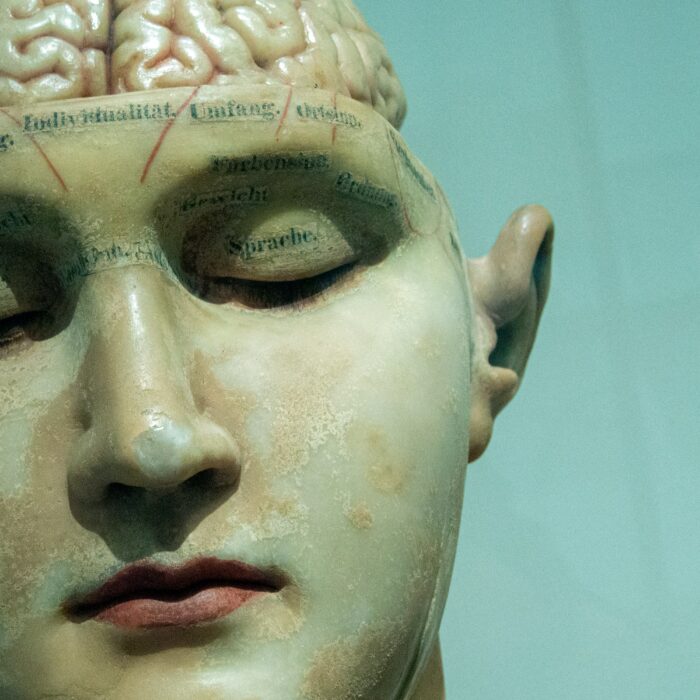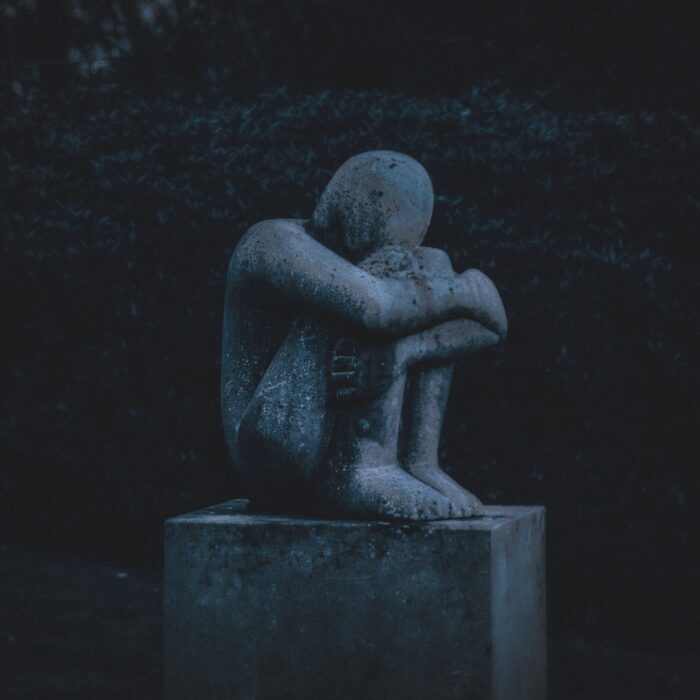You have no items in your cart. Want to get some nice things?
Go shopping
The inside of his car is a separate world. This is his own private universe. He is in control of how the world looks and sounds. He can be the author of this story. He drove along these narrow noisy nosey roads, insulated by this car. A deep blue Maruti Suzuki 800, which was going on 7 years now. He welcomed that listless energy gathering in his chest. He was driving from the suburbs into town. The old part of Mumbai, that which had always existed. The real part. Colaba, Marine Drive, Gateway of India. The roads got wider as he drove, smoother, clearer. When he crossed Bandra, he felt his body relax. The air changed. It was like the ebbing of a headache he had gotten too used to. He rolls his window down. He turns the volume up. Chet Baker sounds sad but free. He lets himself smile and starts to tap his fingers on the steering wheel. He is hemmed in by cars bigger than his own, but nobody can intrude. Horns screech, but they drop away before they can reach him. Isn’t this the way it is supposed to be? He sits up straighter as the roads slope and weave and slide and meld and turn into Marine Drive. The first image he had ever seen of Bombay, in a film which now blends namelessly into hundreds of others, was this. This road. The Queen’s Necklace. Ancient buildings on one side, the Arabian Sea on the other, talking to each other, married to each other for lifetimes.
He leaned his head out of the window and felt the salty wet air go through him. He opened his mouth. The sea kissed him like it knew him.
He drove into Colaba and parked at the same spot he always did, outside an old church. And as always, he reminded himself to go inside that church and see it sometime. The ritual started – the one he looked forward to, the one he followed every time he came to this part of the city. He walked first to a nearby stall which sold freshly squeezed sugarcane juice. A glass for just 10 rupees. He had two. With a dash of lemon, no ice. The sweetness went right through him and settled in his heels. His feet felt lighter now, as he walked to Regal Cinema. This was one of the few single screen theatres left in the city. An Art-Deco theatre, they called it. All of the other cinema theatres were these impersonal, manufactured large rooms with plush seats and no character. This, this was different. You could smell the history in these walls. He stood in front of the movie posters put up in the musty lobby, staring at the airbrushed faces. At some time, film stars would have stood where he was right now, waiting nervously to see the films they had made, the very films that are now canon. The Hindi film that was playing now was a hackneyed rip off of several bad Hollywood movies, starring the son of a famous actor, who had perhaps stood here 30 years ago, unsure of his future.
He wandered around. He could faintly hear the sounds of the show in progress. Seventy rupees for a ticket. It was three hundred and fifty in those multiplexes, inside those huge malls where clothes, perfumes, fast food, Cinema and overpriced popcorn was consumed in droves. Here, there was a completely disinterested man sitting behind a single window. Once in a while, a man or a teenaged couple would approach the window and the man would give them a ticket and take their money without ever looking up. Was it because he had seen enough faces to last a lifetime? Maybe he was just shy.
The sun was setting as he walked towards Kala Ghoda. There were two art galleries here. He found the idea of Art in Mumbai comical, for some reason. Another ritual of his was to go to Rhythm House. He rarely bought anything, but walking the aisles pleased him. He felt at home in music shops and bookstores. They made his heart feel full. This was a music shop that wouldn’t be around much longer. A fancy restaurant was due to replace it soon. It had existed for more than fifty years, but soon, at this very spot that he was standing, something else would be. These CDs, these posters, all these songs, would not be here. Where would they go? He walked along the aisles, picking up some CDs just so he could touch them. It would have been nice if they still had a section for audio-cassettes. He tried to memorize the names of the bands or singers that sounded interesting, so that he could look them up later. Is it ever possible to hear every beautiful song that ever existed, that ever was?
He walked out and breathed deep. These roads, these buildings, the old sky, they cradled him. He felt safe here, ready for an adventure. Colaba Causeway was his favourite stretch of road to walk down. Shops, restaurants, stall on both sides. It was crowded but people gave each other space. He felt absolutely anonymous and completely at home.
He liked to look into restaurants as he walked past them. He slowed down while crossing a door or a window. He saw the people inside. They looked so happy. They were talking loudly, laughing, screaming. Large amounts of food and drinks disappeared inside them and seemed to fuel the noise they were making. He was at a museum, looking at a display titled ‘ Human Happiness, 2010 ‘. This is what it looks like- to have friends, enjoy the company of others, to actually be able to be a part of a large group of people, to let everything go, to laugh, to shout, to be oblivious to everything but your most basic senses, to be void of the voices of reason and doubt, to have fun. This is what it looks like. Liquids of gold, tender moist foods, salivating smells, your arm around the neck of another, somebody’s hand on your knee, no noise except the cacophony around you. This is what people live for. This is what they want.
He kept walking. The sounds of joy lessened as he walked past a restaurant and picked up as he approached another one. Then, a stretch of shops. They didn’t interest him that much, except to see the way the salesmen drew in their customers. He lingered though, at the display window of shoe stores. He liked shoes. He liked the way they seemed to carry people along, without making too much of a fuss about it. Will I be able to walk these roads when I’m famous? Probably not. I could wear a disguise. Or I could find a city where I’m not famous and walk there. But will I be famous? Ever ? I have to be. Really, how can I not? I have to. Life would be unbearable otherwise.
He laughed. Somehow, walking here on these roads, he had the ability to laugh at himself and his thoughts. Otherwise, these thoughts weighed too heavily on him. They pinned him to the ground so that he could barely crawl, let alone laugh.
They came out of nowhere, those anklets. They walked towards him, in a rhythm that matched his own. What were they made of? Their colour was not identifiable. They did not make a sound, but everything else went quiet because of them. They could have escaped from those bare ankles anytime they wanted, but they stayed on, of course. She walked like a melody, her legs were not too thin, her arms moved in just the right way, her neck held her up in just the way it should. She looked as alone as he felt. When he made eye contact with her, the world stopped. The veil was lifted. He saw her. He really saw her. When the barricades are pushed aside, the heart tenses and relaxes at the same time. We’ve known each other in a previous life, I’m sure of it. We were happy then. How or why we parted, I have worked hard to forget. He wanted to take her hand in his hand and just keep walking. He’d walk with her right across the sea. They would cross the world together. Everything else would take care of itself, things would work out. Here finally is a song that he could sing. She has the gift of life, a life together. She walks towards him, they both look at each other. She knows, she has to know, how could she not? But then, She is gone. She walks past him. He keeps moving, another 3 steps and then looks back. She has already been lost in the crowd. They took her, carried her away from him. 30 seconds was all the she and he had together. She did not stop for him, he did not make her stop. She is gone. I need to follow her. But his feet keep taking him further away. He looked down and saw his feet moving, by themselves.
He goes to Baghdadi. The fluorescent white of the tube lights make him feel completely anonymous. This is one of those restaurants where strangers sit at the same table. He is one of the many. A sign on the wall says ‘ Over drunken person will not be served ‘. The menu is written up on a chart on the wall. His favourite is the Tuesday special. Chicken White. But today is not Tuesday. He orders the Chicken Curry. He always looks forward to the smell of the huge naan that they serve. He looks around. The waiters are all familiar faces, but he has hardly spoken to any of them. There are two men at his table. They have come together but they both eat silently, looking down. They must work around here. One of them eats in a hurry, the other takes his time. The three of them sit there, surrounded by the low hum that is always present in places like these. Outside, people pass by, laughing.
His food arrives and he eats. His mind is elsewhere. The heaviness in his chest is coming back. The chicken tastes good, but not as good as usual. He finishes, goes to the wash basin where, in lieu of soap, there are just slices of lime. He takes the pieces into his fist and squeezes tightly, then lets them fall and washes his hands. He goes to the counter and pays, remembering to leave a small tip. He finds it strange how so few of the customers here leave tips.
He walks towards Apollo Bunder. He passes by Bade Miyan, where people are eating food off plates propped up on the bonnets of their cars. He passes by the Gateway of India without lingering too long. He does not want to be accosted by the touts there, or the photographers who want to take your photo for a small price. They don’t stop him. He doesn’t look like the type who wants his photo taken. Besides, why would a person who is all by himself want his photo taken?
He sees the horse-drawn carriages go by, carrying tourists. He tries to not look in to the eyes of the horses. There is no sadness in them, just resignation. And the ones that are wearing the blinkers, what must they be thinking of?
He glances at the entrance of the Taj Hotel to see if there is anyone famous entering or leaving. He keeps walking. There are not too many stars out tonight. The sea air tries to comfort him, but he shrugs it off. He still hopes to see her. He’ll turn a corner and she’ll be there. But those anklets already seem far away. She is nowhere. Maybe I’ll see her again. This time we’ll talk. She cannot walk past again. She’ll recognize me this time. How can she not stop? He walks slower. He knows he’ll never see her again. She’s gone. Someday. Someday I’ll write a poem about her. I’ll remember this one. Was she even real? She could have been my way out. Now, she’s gone. She is probably still somewhere in a 5 kilometre radius of where I stand. But I’ll never see her again.
He finds that he has walked back to his car. He gets in and starts the engine. He doesn’t drive yet. He switches through the radio stations. He lands on an old Hindi song that he heard for the first time when he was twelve. “Ajeeb dastaan hai yeh, kahaan shuru kahan khatam (What a strange story is this, with no beginning or end?) “. He lets it play as he sets off. It is now past midnight. The city has taken off its clothes and gotten into bed. The air is cooler, the roads are quieter, the smells are lonelier. When he passes through Kala Ghoda, he sees all the men dressed up in drag, standing there, looking for customers. They bend at the waist and look straight at him as he drives past. Ladies of the night. To them, he is a potential customer. They look right at him, and hold their gaze. He needs that. Somebody who looks right at him.
He rolls up his window and rolls down the window on the passenger side. He does not want the air to touch him so directly.
My heart is full. What is it full of though?
He drives faster. He rolls all the four windows down. The air rushes in. He lets himself be enveloped by it.
I feel so heavy, I could fly away.
About Vijay Chaudhri
Vijay Chaudhri has worked previously in the Theater, as an actor and director. He currently lives in Mumbai, India where he works as a Drama teacher. 'Poem City' is an extract from his unpublished first novel, 'The Actor'.





So it was a great way and we all want to thanks the website to give us the hack fortnite online here.